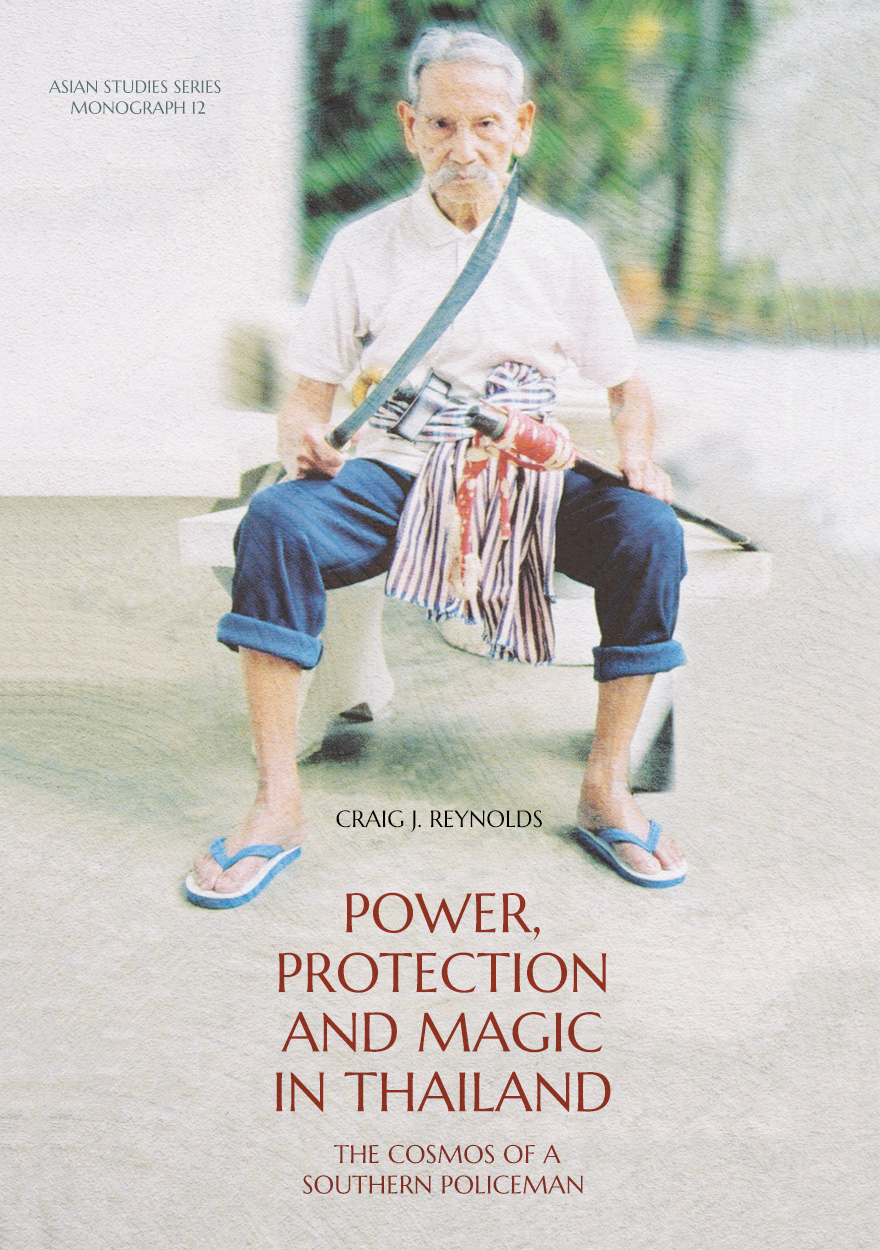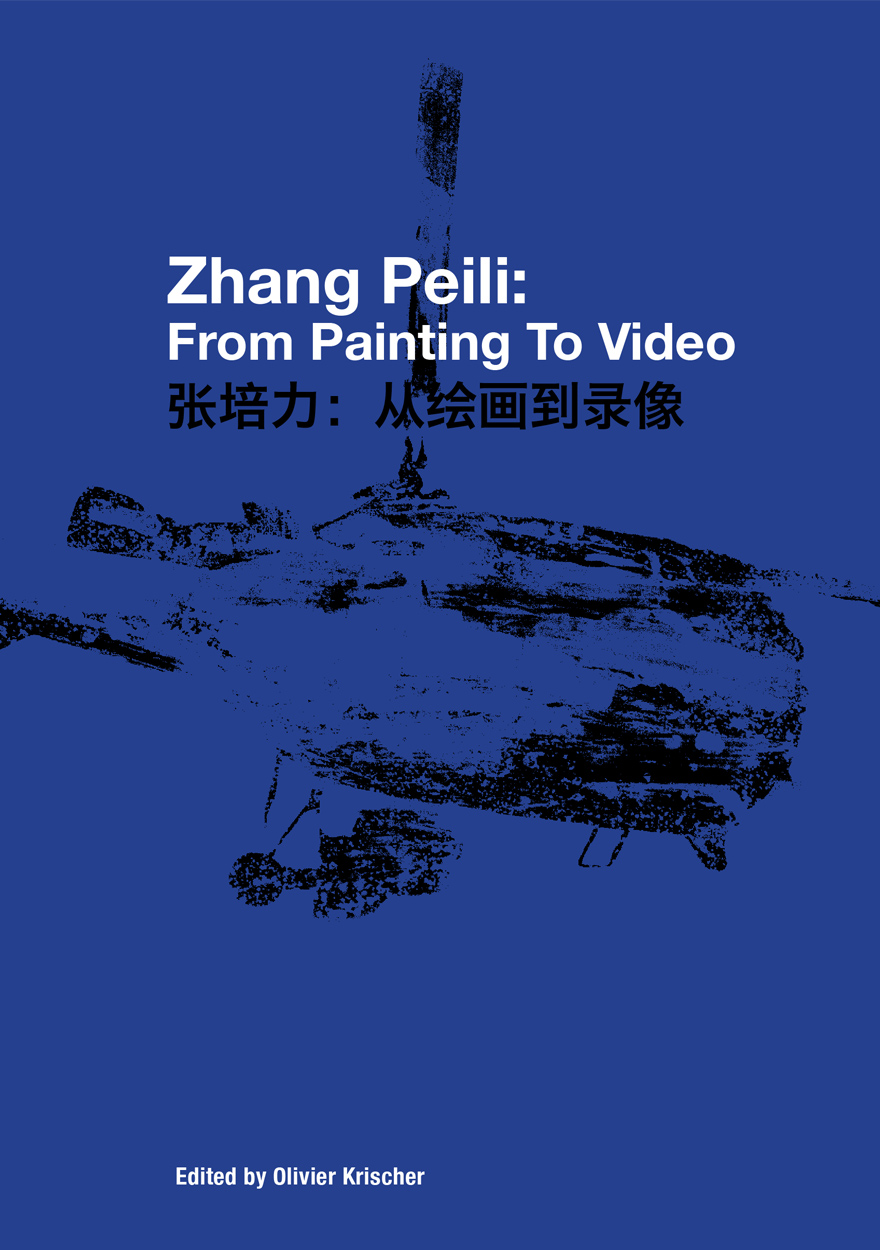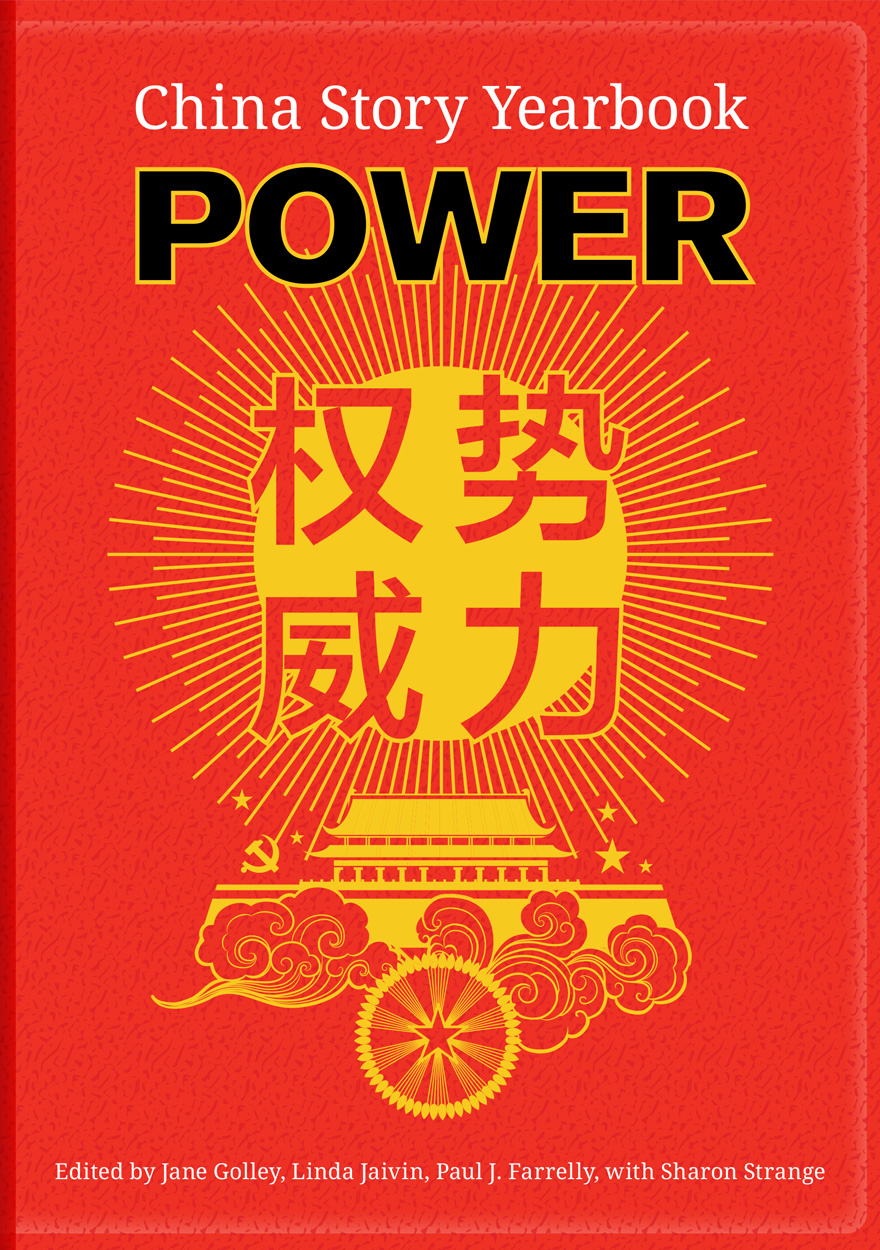Search titles
Displaying results 41 to 50 of 223.

Power, Protection and Magic in Thailand »
The Cosmos of a Southern Policeman
Authored by: Craig J. Reynolds
Publication date: October 2019
This biographical study of an unusual southern policeman explores the relationship between religion and power in Thailand during the early twentieth century when parts of the country were remote and banditry was rife. Khun Phan (1898–2006), known as Lion Lawman, sometimes used rather too much lethal force in carrying out his orders. He was the most famous graduate of a monastic academy in the mid-south, whose senior teachers imparted occult knowledge favoured by fighters on both sides of the law. Khun Phan imbibed this knowledge to confront the risks and uncertainty that lay ahead and bolster his confidence and self-reliance for his struggle with adversaries.
Against the background of national events, the story is rooted in the mid-south where the policeman was born and died. Based on a wide range of works in Thai language, on field trips to the region and on interviews with local and regional scholars as well as the policeman’s descendants, this generously illustrated book, accompanied by short video clips, brings to life the distinctive environment of the lakes district on the Malay Peninsula.

Tulagi »
Pacific Outpost of British Empire
Authored by: Clive Moore
Publication date: September 2019
Tulagi was the capital of the British Solomon Islands Protectorate between 1897 and 1942. The British withdrawal from the island during the Pacific War, its capture by the Japanese and the American reconquest left the island’s facilities damaged beyond repair. After the war, Britain moved the capital to the American military base on Guadalcanal, which became Honiara.
The Tulagi settlement was an enclave of several small islands, the permanent population of which was never more than 600: 300 foreigners—one-third of European origin and most of the remainder Chinese—and an equivalent number of Solomon Islanders. Thousands of Solomon Islander males also passed through on their way to work on plantations and as boat crews, hospital patients and prisoners.
The history of the Tulagi enclave provides an understanding of the origins of modern Solomon Islands. Tulagi was also a significant outpost of the British Empire in the Pacific, which enables a close analysis of race, sex and class and the process of British colonisation and government in the late nineteenth and early twentieth centuries.

Contested Terrain »
Reconceptualising Security in the Pacific
Authored by: Steven Ratuva
Publication date: September 2019
Contested Terrain provides a cutting-edge, comprehensive and innovative approach to critically analysing the multidimensional and contested nature of security narratives, justified by different ideological, political, cultural and economic rationales. This is important in a complex and ever-changing situation involving a dynamic interplay between local, regional and global factors. Security narratives are constructed in multiple ways and are used to frame our responses to the challenges and threats to our sense of safety, wellbeing, identity and survival but how the narratives are constructed is a matter of intellectual and political contestation. Using three case studies from the Pacific (Fiji, Tonga and Solomon Islands), Contested Terrain shows the different security challenges facing each country, which result from their unique historical, political and socio-cultural circumstances. Contrary to the view that the Pacific is a generic entity with common security issues, this book argues for more localised and nuanced approaches to security framing and analysis.

Everyday Revolutions »
Remaking Gender, Sexuality and Culture in 1970s Australia
Edited by: Michelle Arrow, Angela Woollacott
Publication date: August 2019
The 1970s was a decade when matters previously considered private and personal became public and political. These shifts not only transformed Australian politics, they engendered far-reaching cultural and social changes. Feminists challenged ‘man-made’ norms and sought to recover lost histories of female achievement and cultural endeavour. They made films, picked up spanners and established printing presses. The notion that ‘the personal was political’ began to transform long-held ideas about masculinity and femininity, both in public and private life. In the spaces between official discourses and everyday experience, many sought to revolutionise the lives of Australian men and women.
Everyday Revolutions brings together new research on the cultural and social impact of the feminist and sexual revolutions of the 1970s in Australia. Gay Liberation and Women’s Liberation movements erupted, challenging almost every aspect of Australian life. The pill became widely available and sexuality was both celebrated and flaunted. Campaigns to decriminalise abortion and homosexuality emerged across the country. Activists set up women’s refuges, rape crisis centres and counselling services. Governments responded to new demands for representation and rights, appointing women’s advisors and funding new services.
Everyday Revolutions is unique in its focus not on the activist or legislative achievements of the women’s and gay and lesbian movements, but on their cultural and social dimensions. It is a diverse and rich collection of essays that reminds us that women’s and gay liberation were revolutionary movements.

Afterlives of Chinese Communism »
Political Concepts from Mao to Xi
Publication date: June 2019
Afterlives of Chinese Communism comprises essays from over fifty world- renowned scholars in the China field, from various disciplines and continents. It provides an indispensable guide for understanding how the Mao era continues to shape Chinese politics today. Each chapter discusses a concept or practice from the Mao period, what it attempted to do, and what has become of it since. The authors respond to the legacy of Maoism from numerous perspectives to consider what lessons Chinese communism can offer today, and whether there is a future for the egalitarian politics that it once promised.

Zhang Peili »
From Painting to Video
Edited by: Olivier Krischer
Publication date: June 2019
In 2014, New York-based artist Lois Conner gifted one of pioneering Chinese artist Zhang Peili’s last paintings to The Australian National University’s newly opened Australian Centre on China in the World. Never exhibited and thought lost, the reemergence of Flying Machine (1994) prompts an exploration of the relation between painting and video in the oeuvre of Zhang Peili. Given Zhang’s significance as a leading conceptual painter in the 1980s, then as a media art pioneer and educator in the 1990s and 2000s, Zhang Peili: From Painting to Video is also a nuanced study of broader developments in Chinese contemporary art’s history. Featuring contributions by historian Geremie R. Barmé, photographer Lois Conner, art historians John Clark, Katie Grube, and Olivier Krischer, and curator Kim Machan, these essays together challenge the narrative of Zhang as ‘the father of Chinese video art’, highlighting instead the conceptual consistency, rigour, and formal experimentation in his work, which transcends a specific medium. By equal measure, the book embraces longstanding connections as integral to its meaning, connections between artists, curators and researchers, collaborators, colleagues and friends through China and Australia.

Understanding Oceania »
Celebrating the University of the South Pacific and its collaboration with The Australian National University
Edited by: Stewart Firth, Vijay Naidu
Publication date: May 2019
This book is inspired by the University of the South Pacific, the leading institution of higher education in the Pacific Islands region. Founded in 1968, USP has expanded the intellectual horizons of generations of students from its 12 member countries—Cook Islands, Fiji, Kiribati, Marshall Islands, Nauru, Niue, Samoa, Solomon Islands, Tokelau, Tonga, Tuvalu and Vanuatu—and been responsible for the formation of a regional elite of educated Pacific Islanders who can be found in key positions in government and commerce across the region.
At the same time, this book celebrates the collaboration of USP with The Australian National University in research, doctoral training, teaching and joint activities. Twelve of our 19 contributors gained their doctorates at ANU, most of them before or after being students and/or teaching staff at USP, and the remaining five embody the cross-fertilisation in teaching, research and consultancy of the two institutions.
The contributions to this collection, with a few exceptions, are republications of key articles on the Pacific Islands by scholars with extensive experience and knowledge of the region.

Power »
Edited by: Jane Golley, Linda Jaivin, Paul J. Farrelly, Sharon Strange
Publication date: April 2019
In 2018, the People’s Republic of China (PRC) was, by most measures, more powerful than at any other time in its history and had become one of the most powerful countries in the world. Its economy faced serious challenges, including from the ongoing ‘trade war’ with the US, but still ranked as the world’s second largest. Its Belt and Road Initiative, meanwhile, continued to carve paths of influence and economic integration across several continents. A deft combination of policy, investment, and entrepreneurship has also turned the PRC into a global ‘techno-power’. It aims, with a good chance of success, at becoming a global science and technology leader by 2049 – one hundred years from the founding of the PRC.
In surveying the various ways in which the Party-state wields its hard, soft, and sharp power, the China Story Yearbook: Power offers readers a sense of the diversity of power at work both in China and abroad. Citizens of the PRC have long negotiated the state’s influence; increasingly, diaspora communities and other actors are now being subject to its might. As with previous editions in the series, we place important developments in historical context, and adopt a cross-disciplinary approach: it is our view that economy and politics cannot be divorced from culture, history, and society. The Yearbook provides accessible analysis of the main events and trends of the year and is an essential tool for understanding China’s growing power and influence around the world.

Pacific Exposures »
Photography and the Australia–Japan Relationship
Authored by: Melissa Miles, Robin Gerster
Publication date: December 2018
Photography has been a key means by which Australians have sought to define their relationships with Japan. From the fascination with all things Japanese in the late nineteenth century, through the era of ‘White Australia’, the bitter enmity of the Pacific War, the path to reconciliation in the post-war period and the culturally complicated bilateralism of today, Australians have used their cameras to express a divided sense of conflict and kinship with a country that has by turns fascinated and infuriated. The remarkable photographs collected and discussed here for the first time shed new light on the history of Australia’s engagement with its most important regional partner. Pacific Exposures argues that photographs tell an important story of cultural production, response and reaction—not only about how Australians have pictured Japan over the decades, but how they see their own place in the Asia-Pacific.
‘Pacific Exposures presents the first study of the photographic exchanges between Australia and Japan—its photographers, personalities, motivations, anxieties and tensions—based on a diverse range of archival materials, interviews, and well-chosen photographs.’
— Dr Luke Gartlan, University of St Andrews
‘[Pacific Exposures] will become a key text on Australia’s interactions with Japan, and the way that photographs can inform cross-cultural relations through their production, consumption and circulation.’
— Prof. Kate Darian-Smith, University of Tasmania
In the media
Listen to the ABC Radio interview: Japan in Focus (from 13:06).

Global Debates, Local Dilemmas »
Sex-selective Abortion in Contemporary Viet Nam
Authored by: Tran Minh Hang
Publication date: December 2018
The practice of sex-selective abortion is on the rise globally, stirring debates about gender inequality, medical ethics and reproductive autonomy. This book is the first ethnography to document practices of sex selection in Viet Nam. It shows how and why abortions are used to select the sex of children and how Vietnamese individuals and health professionals are implicated in this illicit and controversial practice. Telling the stories of women who have undergone sex-selective abortions, it traces their passage through sex determination and abortion decision-making phases, and investigates their experiences during and after their sex-selective abortions. It describes the turmoil experienced by individuals who undergo such abortions and explores their interactions with the spectrum of social actors and health institutions that facilitate practices of sex selection.
As the first ethnographic study on sex-selective abortions in Viet Nam, this book delves into socially sensitive terrain and sheds light on personally fraught individual experiences of reproductive agency. It documents societal responses to sex-selective abortions in Viet Nam and identifies gaps in the state’s capacity to regulate reproductive desire in a marketised economy. A resource for researchers, it contributes to ongoing debates on sex selection and provides a framework for developing relevant social policies, interventions and support services.
‘This pioneering study offers a nuanced and sensitive account of sex-selective abortion as human experience. Through thought provoking case studies, the book provides rare ethnographic documentation of the complex quandaries that arise as selective reproductive technologies are routinised across the globe.’
— Tine M. Gammeltoft, Department of Anthropology, University of Copenhagen



